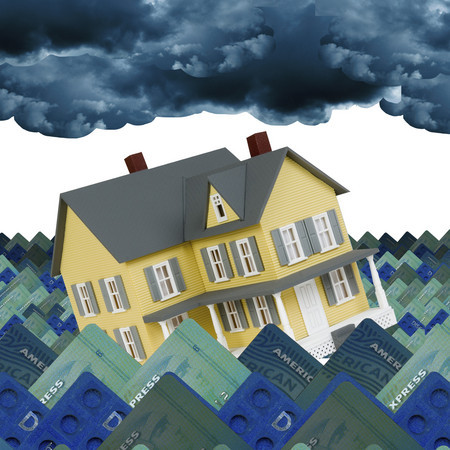Develop plan to get credit card balance under control
Nearly half of all Americans have a credit card balance over their heads, according to the White House. The average is more than $7,000.
The credit card bill President Obama signed into law in May promises some good news for consumers. But it doesn't take effect until next February. In the meantime, cash-strapped credit card companies are free to increase interest rates, lower limits and levy fees virtually at will.
And that's exactly what they're doing, according to Consumer Credit Counseling Services of Nevada Chief Operating Officer Cena Valladolid, "even for those with excellent payment histories and credit scores."
If, after trimming all your budgetary fat, you still find yourself sinking under plastic weight, there are options available right now.
1. CHANGE HOW YOU PAY
The conventional wisdom -- putting a little extra toward all your cards -- is wrong, according to Consumer Credit Counseling Services.
"We recommend putting all of your extra onto the creditor with the smallest balance," Valladolid says. "We have seen, based on our calculations, that you'll get out of debt faster, because if you pay off one account, now you have one less minimum payment, and you can keep rolling that money over onto the next smallest balance."
If making even your minimum payments doesn't look likely because of loss of income, keep reading.
2. CONSIDER CONSUMER CREDIT COUNSELING SERVICES
Consumer Credit Counseling Services of Nevada offers workout programs, negotiated with credit card companies, that may reduce your interest rates in exchange for fixed payments designed to eliminate your debt in three to five years. Usually, the negotiated rates are 5 percent or 6 percent. But Valladolid says some can go as low as zero.
"Every creditor is different," she says.
Currently, 1,600 Nevadans are enrolled.
There are disadvantages, however. Consumer Credit Counseling Services requires clients to give up the use of all cards -- even those reserved for emergencies. In addition, the workout program may show up on your credit report (although it won't affect your score). Some creditors view this as positive, since you're taking responsibility. Others see it as a negative.
And, although Consumer Credit Counseling Services offers counseling for free, it charges up to $20 per month for its repayment program.
3. DO IT YOURSELF
The toll-free number on the back of your credit card also is a possibility, and that's absolutely free.
"My recommendation is most people can get themselves out of debt," says Sharon Jackson, commissioner of the Nevada Consumer Affairs Division. "Contact the individuals that are billing you and make arrangements to make payments or have a payment lowered."
Partners First, the credit card division of Bank of Nevada, says it will negotiate directly with consumers, offering workout programs similar to Consumer Credit Counseling Services.
"That definitely is one of your options," says Partners First CEO/President Hal Erskine, although he declined to say how many customers call directly, or what percentage of those are helped and to what degree.
However, banks put their best interests first, not yours. So at least meet with Consumer Credit Counseling Services first, for their free counseling.
4. ATTORNEYS AND DEBT-CONSOLIDATION COMPANIES
Be careful here. Inquire first about complaints with the Better Business Bureau and the Nevada Consumer Affairs Division. If the company is run by an attorney, the Nevada State Bar can verify that he or she is properly licensed.
"We have stories of bogus debt consolidation companies that say they're gonna pay the creditors and walk off with all the payments," says Rhea Gertken, directing attorney for Nevada Legal Services.
Some of Valladolid's clients have lost thousands of dollars to unscrupulous debt-consolidators.
"They're told to stop paying their credit cards for six months, and now they're getting sued, their balances are 30 percent higher than when they started, and the creditors didn't settle," she says, "or a settlement's arranged and the client didn't have enough money to settle it."
Settlements are generally payable within 30 days.
"And people who can't afford to pay their monthly minimum credit card payments usually do not have enough money to settle a debt," Valladolid says.
5. BANKRUPTCY
All your debts may be forgiven, but your credit definitely will receive 10 years' bad luck. This should be considered only as your last resort, since getting a new house, car or -- most significantly -- a new job can prove difficult or impossible.
"This is only if you absolutely can't afford to pay back your debts because you've been unemployed for a long time and you don't see a horizon at the end," says Valladolid, who has recommended against bankruptcy for some clients who owe $100,000, and for it for some who owe $10,000.
"It all depends on your finances on the whole," she says.
Contact reporter Corey Levitan at clevitan@reviewjournal.com or 702-383-0456.




























